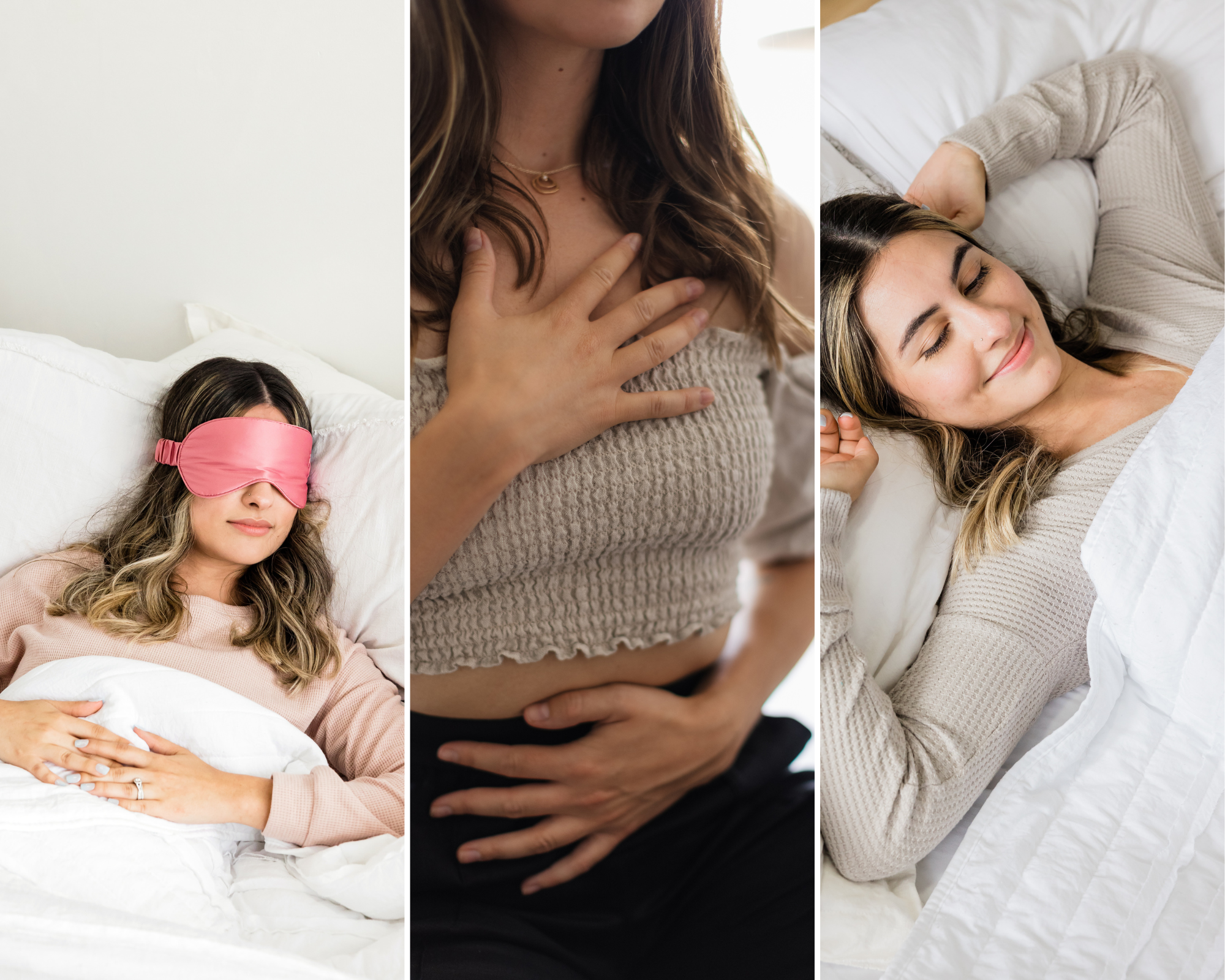Maybe it’s a case of hitting a certain age, or maybe it’s because of how much we have seen in the media, but sleep is a topic on everybody’s lips. We’ve spoken to nutritionist and wellness coach Caroline Sanders to find out why you need to get better sleep.
“Sleep deprivation and sleep disorders have been linked with HPA axis dysfunction, gut, immune & hormone dysregulation. Added stress (cortisol), caused by the lack of sleep contributes to elevated blood sugar/insulin levels (which can eventually lead to even further problems if chronic), impaired metabolism, reduced creativity, & excess weight gain – especially around the middle. Lack of sleep may also increase hunger throughout the day, contribute to irregular menstrual cycles, cause mood issues and lower focus/concentration throughout the day.”
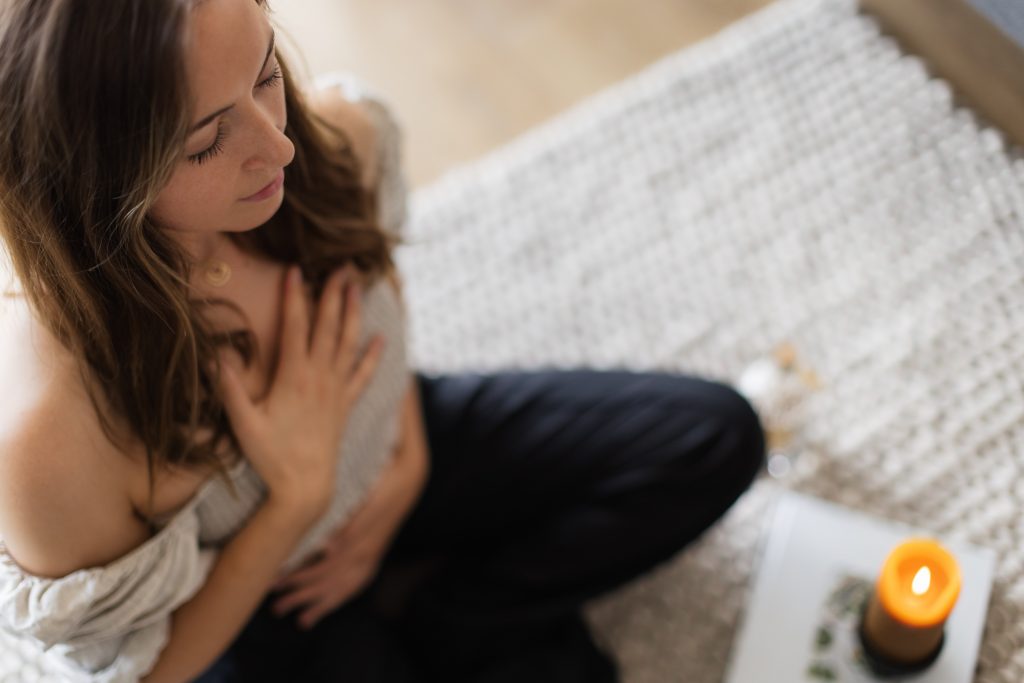 So, how can we optimise our sleep and implement those healthy habits needed to ensure a great night of rest?
So, how can we optimise our sleep and implement those healthy habits needed to ensure a great night of rest?
Get that sunlight in, first thing!
One of the best things you can do for your sleep actually starts in the morning. Once you’re awake, get sunlight on your eyes as soon as you can. Exposing our eyes to sunlight triggers the production of serotonin. Not only is this the ‘happy hormone’. but it is also the precursor to the hormone melatonin. Melatonin is the hormone that makes you feel sleepy and prepares the body for deep restorative rest, therefore you need a big enough pool of serotonin available to be converted to melatonin when it comes to evening time (the conversion is triggered by darkness). So boosting our nighttime hormones actually starts in the morning. A morning walk first thing is the best scenario, but if you don’t have the luxury of that, literally pop your head out of the window and let the natural light hit your retinas. If that’s not easy, or it’s dark when you wake up, invest in a light therapy lamp such as the Lumie light.
Reduce Evening Screen Time
Something that can block our serotonin-melatonin conversion is the blue light emitted from the screens of phones, laptops and TVs. Being exposed to blue light when we’re trying to unwind can make our brain think it’s still daytime, therefore melatonin release is suppressed. This will prevent you from feeling sleepy and may affect the quality of your sleep, causing you to take longer to fall into a deep sleep. Try and have an hour of screen-free time before sleep to set yourself up for a night of much more nourishing sleep. Blue light-blocking glasses can also help, I love these by Block Blue Light.
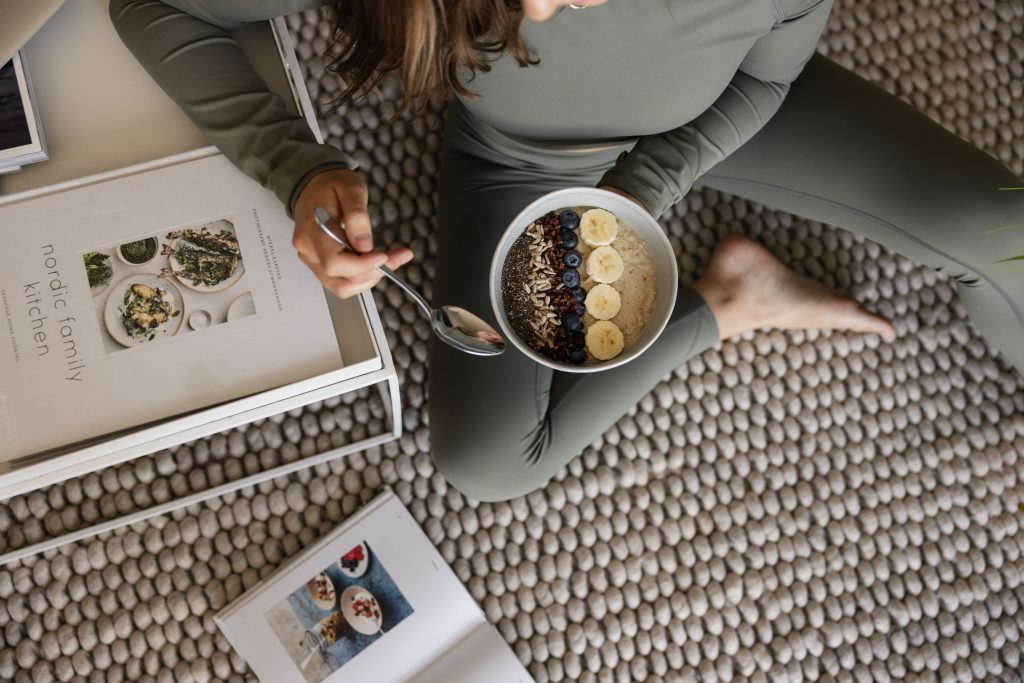 Magnesium
Magnesium
Increase your intake of magnesium-rich foods and consider a supplement. Magnesium deficiency is associated with insomnia, and there is a vicious cycle between low magnesium and stress; stress can lead to magnesium loss and low levels of magnesium are associated with poor stress resilience. Therefore, supporting your magnesium levels throughout the day is essential for reducing stress and anxiety and feeling calm in both your body and mind when it comes to sleep. Foods rich in magnesium are dark leafy green vegetables (e.g. kale, cavolo nero, spinach), pumpkin seeds, brown rice, tofu, cashew nuts, almonds, chickpeas, avocados and dark chocolate. Consider the magnesium glycinate supplement by Pure Encapsulations that is highly bioavailable and gentle on the gut.
Wind Down Routine
Your body loves routine, so if you can create an evening wind-down routine then this will really help it understand that the day is done and it’s time to prepare for sleep. This doesn’t have to be complicated; the simpler the better, so you’re more likely to stick to it. After cleansing with a probiotic cleanser by The Nue and taking a magnesium supplement, I journal about the moments of joy I had in my day and listen to a calming meditation as I fall asleep. Insight Timer has many free sleep meditations, or, you can adopt the 4-7-8 breathing pattern whilst you’re trying to switch off; inhale for 4 counts, hold for 7 and exhale for 8; keep repeating. This moves your body into a parasympathetic state (your rest and digest mode) allowing you to fall asleep quicker.
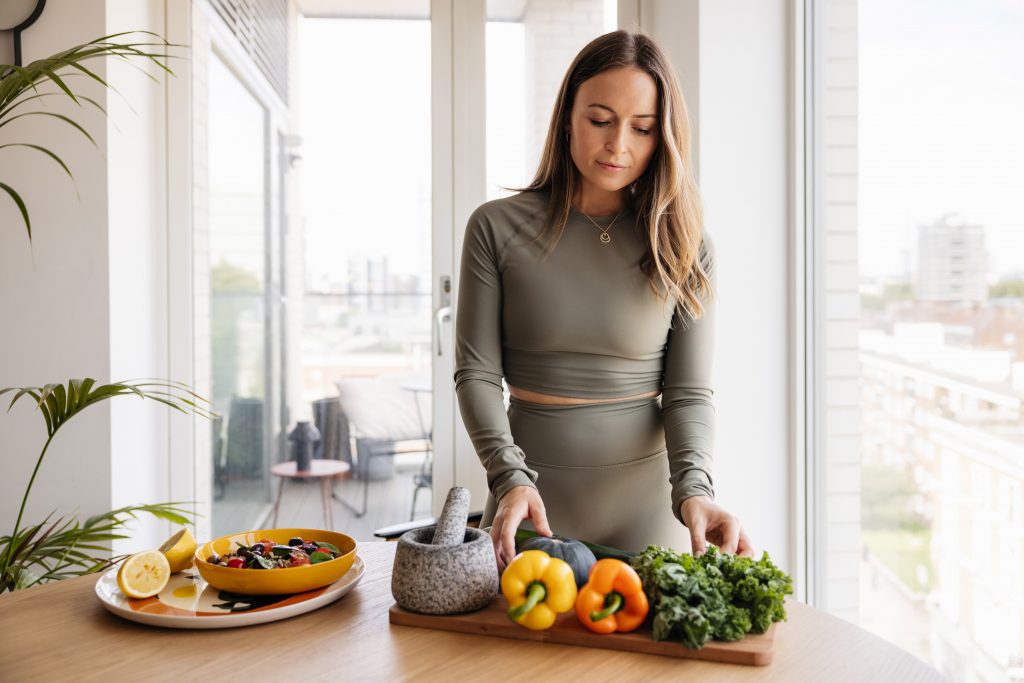 Don’t Eat Meals Too Late
Don’t Eat Meals Too Late
Ideally, leave at least 2 hours between finishing your last meal and going to bed. This is so your body has enough time to digest your food properly. You want your body to be able to focus on healing and regenerating itself once you are sleeping rather than still digesting your dinner. Having too full a stomach can cause light and more disturbed sleep and more chance of waking in the night.
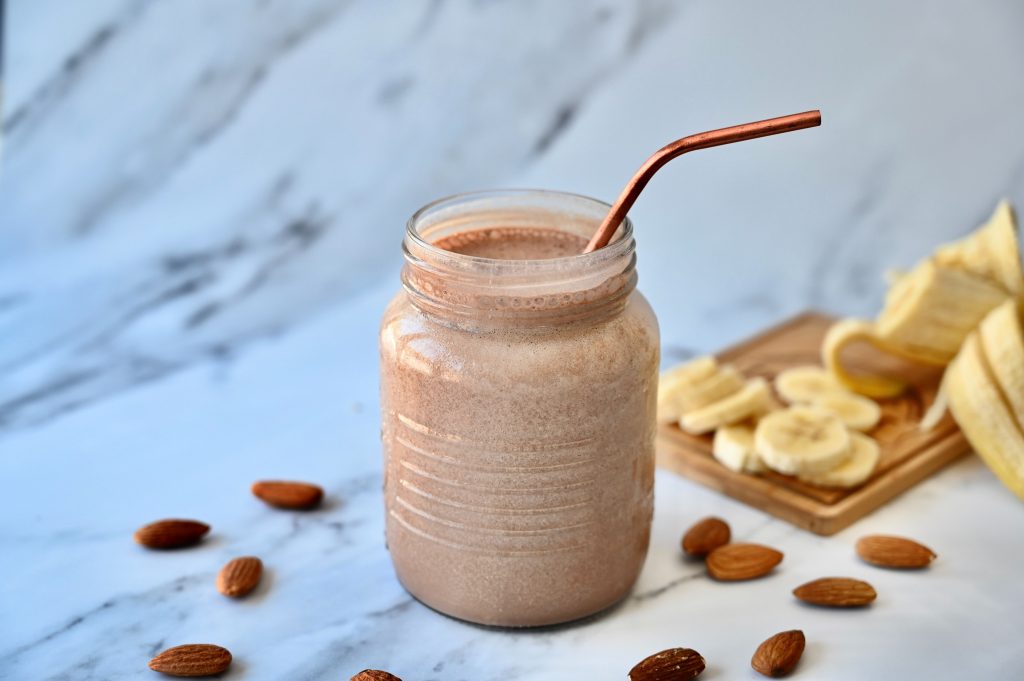 Make a Sleepy Smoothie
Make a Sleepy Smoothie
Whilst it is important to not eat meals too late, it can be helpful for some people to have a small nourishing snack before bed. This is due to the fact that our blood sugar drops during the night and for those who are currently struggling with blood sugar imbalance this can cause them to wake around 2am-3am. Whilst you are working on balancing your blood sugar levels throughout the day, it can be supportive to eat something small to carry you through the night, which also boosts sleep quality. Try this sleepy smoothie; oats are high in tryptophan which is the precursor to serotonin, so again it helps with that melatonin production, bananas are also serotonin boosters, almond milk and almond butter are rich in magnesium and chamomile tea helps to combat insomnia due to its apigenin content:
Sleepy Smoothie
Ingredients:
· ½ cup almond milk (or substitute the oats for oat milk)
· ¼ cup oats
· ½ banana
· 1 tsp almond butter
· 100 ml chamomile tea
Method:
· Brew the chamomile tea and leave to cool
· Once cool, blend 100ml of the chamomile tea with the rest of the ingredients in a blender and enjoy before you begin your nighttime wind down
Find more information on Caroline here or follow her on Instagram – @carolinerosewellness

